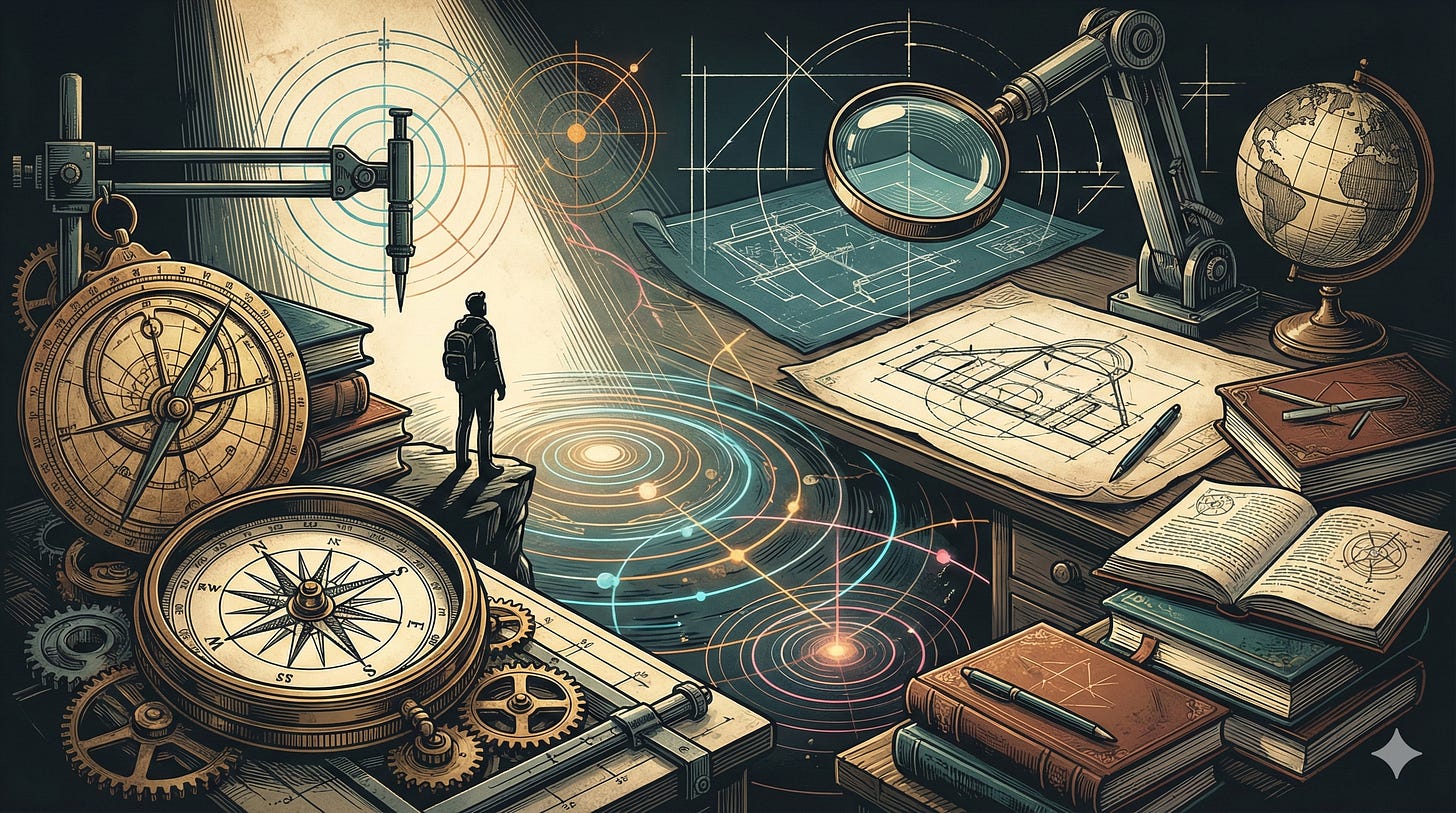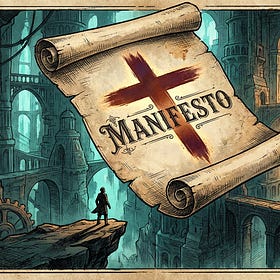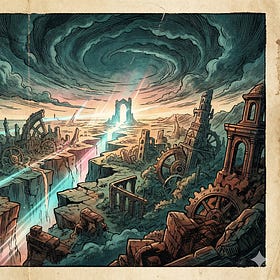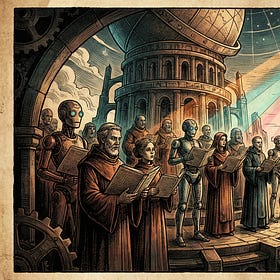Fluent in AI or Clueless About People?
A CEO, a Memo, and the Sound of Screaming Creatives. (Agentic leadership is more than just rushing forward into the future of work.)
Shopify's CEO Told Everyone to Use AI. He Forgot to Ask How They Feel.
The Shopify AI memo got applause and backlash in equal measure. Here's why both sides are right — and what leaders keep missing.
“AI will totally change Shopify, our work, and the rest of our lives. We're all in on this!”
That’s how Shopify CEO Tobi Lütke signed off a recent internal memo to his employees. The key message was that AI is now a basic expectation for everyone working at Shopify.
The memo leaked, not surprisingly. And the social media peanut gallery came alive with applause.
“Bold move.”
“Adapt or become redundant.”
“A clear directive. I like that. We'll see more of this.”
One particularly sharp commenter nailed it:
“What if AI fluency becomes the new literacy test for leadership? Tobi isn’t experimenting. He’s rewiring the org from the inside. Most CEOs talk AI. Few operate differently. This memo? A signal. The age of AI-native companies has begun. What next? Who’s next?”
Source: LinkedIn
The backlash was predictable, because, of course, not everyone is clapping and chanting at the arrival of digital coworkers. One snarky response went like this:
“Great. Now we’ve got tech bros who don’t actually create stuff telling us to vibe code everything. Can we replace CEOs with AI? Because what they do seems easier to automate than real engineering.”
Source: LinkedIn
And I think they have a point too.
The memo may be a signal, but it also lit up some genuine anxiety about what happens when CEOs force AI into workflows with zero regard for employee wellbeing. If you want some horror stories, try this delightful read from Aftermath:
“Many artists remain firm in their resistance to AI technology that devalues their work, and are championing human creators in the face of it.”
“‘An Overwhelmingly Negative And Demoralizing Force’: What It’s Like Working For A Company That’s Forcing AI On Its Developers” - Aftermath
AI Adoption Needs a Middle Ground
Here’s where I land—right in the unglamorous, inconvenient middle.
Let’s stop glorifying or demonizing AI. It’s a tool. A powerful one. But still a tool. It’s neither magic nor evil. It merely exists to improve people’s experiences.
Yes, companies should absolutely adopt AI to be better, faster, and cheaper. But that only makes sense if it results in (for example):
Safer experiences for customers (like banks preventing fraud)
More relevant experiences (like shops recommending what I actually need)
Smarter services (like coaches and consultants giving personalized advice)
And there’s no need to put “Now, with AI!” banners on any product. As a customer, I don’t care which products have AI and which don’t. Just make some part of my life better for me, and I’ll be happy to take out my wallet.
If AI improves nothing for customers, then forcing it on teams is just performative tech cosplay.
I’m a seasoned founder, intrapreneur, and former CIO who builds maps and models for Solo Chiefs navigating sole accountability in the age of AI—informed by plenty of scar tissue. All posts are free, always. Paying supporters keep it that way (and get a full-color PDF of Human Robot Agent plus other monthly extras as a thank-you)—for just one café latte per month. Subscribe or upgrade.
Don’t Forget the People Doing the Work
CEOs love their shiny tools, but the most brilliant AI system won’t save your company if your best people walk out the door muttering, “I didn’t sign up to train my replacement.”
AI can free up humans to do better work—more creative, strategic, problem-solving work. That is, if leaders actually care about the employee experience and not just the hype of building faster and cheaper.
And hey, maybe try using AI to improve things for all your stakeholders: suppliers, partners, local communities. If you optimize for one group and screw the rest, that’s not strategy. That’s a shortcut to oblivion.
To quote a brilliant keynote speaker I ran into last week:
“Let me know which companies do that, so I can short their stock.”
Why AI Fluency Doesn't Mean AI Fanaticism
I’m with Tobi Lütke. I don’t hate the memo. It’s clear, bold, and probably necessary.
But. I’m giving him the benefit of the doubt and assume that Shopify actually plans to support employees through this transition and that they’re not just slapping ChatGPT stickers on every screen and calling it a digital transformation.
Because if AI fluency really is the new literacy, then companies have a choice:
Either get everyone onboard and engaged,
Or steer the company onto a path to obscurity.
I hope your CEO chooses wisely.
Jurgen, Solo Chief
P.S. Has your CEO sent an AI memo yet? I want to see the good, bad, and ugly ones.
Drop the Framework Guides and Bullshit Manifestos
Zed Tells It Like It Is. AI Leadership and Agentic AI Have No Need for PDFs.
Don't Panic!—The AI Job Apocalypse Is Coming (But Humans Will Always Have Work)
Two billion years ago, a new technology emerged that killed almost everything on Earth—and created the conditions for a sprawling new ecosystem of biological innovation.
This Is Not a Manifesto But a Call for Harmony
The Revenge of Agile: From Amazon to Patagonia and from Jira Tickets to Judgment Day. The Future of Work Is Agentic AI and Networked Organizations.





